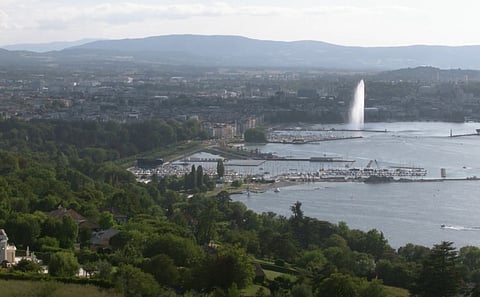New Reports Chart Pathways for Nature-Positive Transformation Across Key Industries and Cities
The World Economic Forum has published six reports aimed at accelerating the global shift toward a nature-positive future. Five of the reports focus on sector-specific strategies for critical industries – offshore wind, mining and metals, ports, and automotive (global and a China Deep-dive) – while the sixth examines urban financing solutions for building sustainable, nature-positive cities.
The report series, developed in collaboration with Oliver Wyman, outlines actionable pathways to protect biodiversity, achieve climate goals, and ensure economic resilience across sectors and geographies amid growing environmental challenges.
While 78% of Fortune 500 companies have set climate targets, only 12% have established targets to halt or reverse biodiversity loss.
Similarly, just 37% of the world's 500 most populous cities have strategies to sustainably manage and protect nature, and spending on urban nature - natural areas and ecosystems within cities, such as parks, green roofs, wetlands, and other green or blue spaces - has shown a decrease between 2018 and 2023.
Yet safeguarding nature is essential to tackling climate change and healthy ecosystems underpin human health, well-being and economic stability.
Despite positive momentum in corporate actions, efforts to address nature and climate challenges remain insufficient to restore planetary health, according to new World Economic Forum research.
Corporates urgently need more investment pathways and opportunities that demonstrate how profits, growth, and jobs can - and should - align with ecological prosperity. In response, the report series highlights the critical dependencies and impacts of urban areas and four key sectors on nature, offering actionable, sector-specific strategies for corporate leaders to drive transformative change in their industries. Companies such as Volvo Cars, Anglo American, Vattenfall, CATL and the Port of Antwerp are among those that have provided guidance and insights to inform sector transitions for a more nature-positive future.
"The business case for safeguarding nature is clear, and companies can start with no-regret actions today,” said Akanksha Khatri, Head, of Nature Action Agenda, World Economic Forum.
“Every industry has unique challenges and opportunities when it comes to protecting nature. By offering tailored, sector-specific strategies, we are equipping leaders with the tools to accelerate meaningful action and deliver transformative change now.”
Nature is not only critical for a healthy climate; it is the backbone of the global economy. An estimated $44 trillion of economic value generation – more than half the world’s GDP – is estimated to be moderately or highly dependent on nature.
Yet biodiversity and functioning ecosystems worldwide are threatened by pressing issues such as land and sea use change, climate change, pollution, water scarcity and invasive species. Companies, investors and government leaders cannot afford to delay addressing nature loss any longer. Although momentum among companies and cities is on the rise following the COP16 biodiversity summit in Colombia in October 2024, sectoral guidance and strategic steps to inform nature-positive efforts have so far been lacking.
The report series aims to fill this gap and guide industries forward at pace. It highlights priority actions both within and beyond value chains. These include tailored, industry-specific steps that companies can take to become nature positive, such as avoiding and reducing impacts from operations and materials, as well as cross-sector collaboration on policy and standards.
In addition, the new research identifies US$1.4 trillion in nature-positive opportunities across four sectors globally, including $160 billion for the Chinese automotive sector specifically, highlighting the urgent need for unlocking new financing models and advocating for systems change.
“We are beginning to see nature emerge as a key issue for leaders across industries, the financial sector, and the public sector,” said Nick Studer, President and Chief Executive Officer, Oliver Wyman.
“These reports are critical to translate ambition on nature into action, by providing clarity around a complex landscape and offering leaders the tools they need to start transforming their operations towards a nature-positive future, today.”
“The ocean is essential to supporting life on Earth and drives the global economy – ports and shipping cover 80% of global trade in terms of volume, and offshore wind is one of the fastest growing renewable energies,” added Alfredo Giron, Head, Ocean Action Agenda, World Economic Forum.
“Businesses must take the lead in transitioning to sustainable practices within the blue economy, safeguarding ecosystems and ensuring a prosperous future for communities and industries alike."


